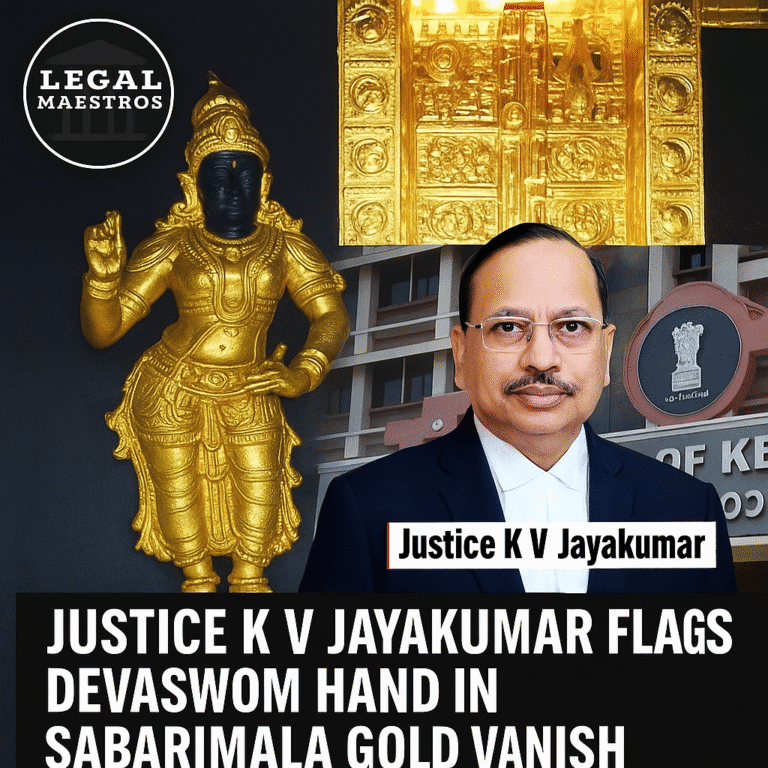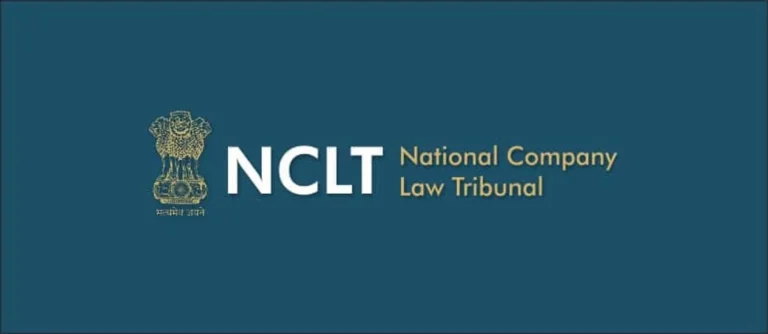
Supreme Court (Justices Sandeep Mehta & Vikram Nath) Clarifies Civil vs Criminal Dispute in Mining Lease Fraud Case
Introduction
In a significant judgment that was handed down on April 15, 2025, the Supreme Court of India, which is comprised of the Honorable Justice Sandeep Mehta and the Honorable Justice Vikram Nath, made it abundantly apparent that there is a distinction between civil disputes and criminal offenses, particularly in the context of economic transactions. The question that was addressed in the case of Suresh Kumar Agarwal versus M/s Haldia Steels Ltd and Others was whether or not a violation of a business agreement pertaining to the transfer of a mining lease could be considered a form of deceit or a criminal breach of trust in accordance with the Indian Penal Code (IPC). The court ruled that the disagreement was entirely of a civil nature and criticized the use of criminal law to exert pressure on parties involved in commercial concerns.
A Brief Overview of the Situation
The appellant, Suresh Kumar Agarwal, had argued to Haldia Steels Limited (HSL) that his proprietorship company, Haryana Minerals, was in possession of a legitimate mining lease for manganese ore in the state of Madhya Pradesh. In exchange for a total fee of ₹3.2 crore, he promised to transform his company into a private limited company and transfer all of its shares to HSL. HSL made a transfer of ₹96.2 lakh to Agarwal on the basis of this matter. On the other hand, just 28 percent of the shares were transferred, and there was no contribution of manganese ore. In the year 2014, HSL filed a criminal complaint, claiming that they had been the victim of fraud.
Particularly noteworthy is the fact that the alleged occurrences took place between the years 2007 and 2008, and there was no explanation provided for the wait of six years in submitting the complaint.
For any queries or to publish an article or post or advertisement on our platform, do call at +91 6377460764 or email us at contact@legalmaestros.com.
Report on the Investigation and Closure Operations
Following the receipt of the complaint, the police filed a First Information Report (FIR) in accordance with Sections 120B, 406, and 420 of the Indian Penal Code. At the same time, a closure report was submitted in accordance with Section 173(2) of the Code of Criminal Procedure (CrPC) following the completion of the inquiry. A civil disagreement regarding an unfulfilled memorandum of understanding was determined to be the true nature of the conflict by the officer who was conducting the investigation.
Another thing that was discovered was that HSL did not produce a purchase order or any other papers that supported their claim. On the other hand, the appellant had in fact transformed his business into a corporation and appointed HSL’s nominees to be directors of the company. In addition to that, he transferred 28% of the shares, but he did not continue any further because the full consideration was not covered.
Rejection of the Petition for Protest
Following the publication of the closure report, HSL submitted a protest petition, in which it asserted that the appellant had fabricated a government decree concerning the transfer of leases. There was no mention of this issue in the initial complaint that was filed. The protest petition was denied by the Chief Metropolitan Magistrate in Calcutta on October 5, 2015, and the closure report was accepted. The Magistrate stated that the disagreement was caused by non-payment in accordance with a commercial agreement, and that it did not contain any criminal offense.
For any queries or to publish an article or post or advertisement on our platform, do call at +91 6377460764 or email us at contact@legalmaestros.com.
a directive from the High Court for additional investigation
Before the Calcutta High Court, HSL filed a challenge against the decision made by the Magistrate. The revision was granted by the High Court on October 17, 2023, and the court ordered the police to conduct additional investigations in accordance with Section 173(8) of the Criminal Procedure Code. The decision was based on Rule 17 of the Mineral Concession Rules, which was enacted in 1960 and stipulates that mining lease transfers must have clearance from the state government. This condition was reportedly not met.
For More Updates & Regular Notes Join Our Whats App Group (https://chat.whatsapp.com/DkucckgAEJbCtXwXr2yIt0) and Telegram Group ( https://t.me/legalmaestroeducators )
Observations and Decisions of the Supreme Court to Consider
Following the granting of extraordinary leave, the Supreme Court conducted an exhaustive review of the case record. The verdict was written by Justice Sandeep Mehta, who underlined that the criminal justice system should not be used as a tool to settle issues that are related to contracts.
For any queries or to publish an article or post or advertisement on our platform, do call at +91 6377460764 or email us at contact@legalmaestros.com.
A number of important facts were underlined by the court:
It took almost six years for the complaint to be submitted after it had been delayed. Not as an advance for mineral supply, the sum of ₹50 lakh was handed out in accordance with a contractual memorandum of understanding. The company HSL has never issued a purchase order for manganese ore in its history.
* Through the formation of a corporation and the transfer of 28 percent of the shares, the appellant was able to satisfy partial of his commitments. As per the terms of the MoU, HSL failed to make the payment of the remaining ₹2.7 crore.
The court came to the conclusion that the complaint was an attempt to inflate the severity of a civil dispute by making it appear as though it were a criminal offense. It was determined that the appellant did not have any dishonest intentions or misrepresentations that would constitute cheating in accordance with Section 420 of the Indian Penal Code or criminal breach of trust in accordance with Section 406 of the Indian Penal Code.
For any queries or to publish an article or post or advertisement on our platform, do call at +91 6377460764 or email us at contact@legalmaestros.com.
Legal Provisions Have Been Investigated…
A review of the following legal provisions was conducted by the Court:
* Section 173(2) of the Criminal Procedure Code permits the submission of final reports following an investigation. There was no evidence of a criminal offense that the police discovered.
* Section 173(8) of the Criminal Procedure Code allows for additional investigations to be conducted, but only when new evidence is presented to justify them. The court decided that the High Court had made an error in its decision to order further investigation; there was no credible new evidence.
For any queries or to publish an article or post or advertisement on our platform, do call at +91 6377460764 or email us at contact@legalmaestros.com.
* Sections 406 and 420 of the Indian Penal Code deal with the criminal offenses of cheating and breaching trust. After careful consideration, the court determined that none of the necessary components of these offenses were present.
The Conclusion of the Court
The United States Supreme Court came to the conclusion that the entire disagreement was caused by the collapse of a business agreement and that it ought to be resolved through civil proceedings rather than through criminal prosecution. Consequently, the ruling issued by the High Court was overturned, and the Magistrate’s acceptance of the closure report was reinstated. In addition, it was mentioned that the complainant had changed its version in the middle of the process by including new allegations in the protest petition, which seemed to lack credibility altogether.
The Supreme Court allowed the appeal, reaffirming the principle that mere breach of contract—without fraudulent intention from the beginning—does not constitute a criminal offence. In its declaration, it was stated that the continuation of such a lawsuit would constitute an abuse of the legal process.
For any queries or to publish an article or post or advertisement on our platform, do call at +91 6377460764 or email us at contact@legalmaestros.com.





![Research Assistantship @ Sahibnoor Singh Sindhu, [Remote; Stipend of Rs. 7.5k; Dec 2025 & Jan 2026]: Apply by Nov 14, 2025!](https://legalmaestros.com/wp-content/uploads/2025/11/Gemini_Generated_Image_s0k4u6s0k4u6s0k4-768x707.png)
![Karanjawala & Co Hiring Freshers for Legal Counsel [Immediate Joining; Full Time Position in Delhi]: Apply Now!](https://legalmaestros.com/wp-content/uploads/2025/11/Gemini_Generated_Image_52f8mg52f8mg52f8-768x711.png)
![Part-Time Legal Associate / Legal Intern @ Juris at Work [Remote]: Apply Now!](https://legalmaestros.com/wp-content/uploads/2025/11/ChatGPT-Image-Nov-12-2025-08_08_41-PM-768x768.png)
![JOB POST: Legal Content Manager at Lawctopus [3-7 Years PQE; Salary Upto Rs. 70k; Remote]: Rolling Applications!](https://legalmaestros.com/wp-content/uploads/2025/11/ChatGPT-Image-Nov-12-2025-08_01_56-PM-768x768.png)